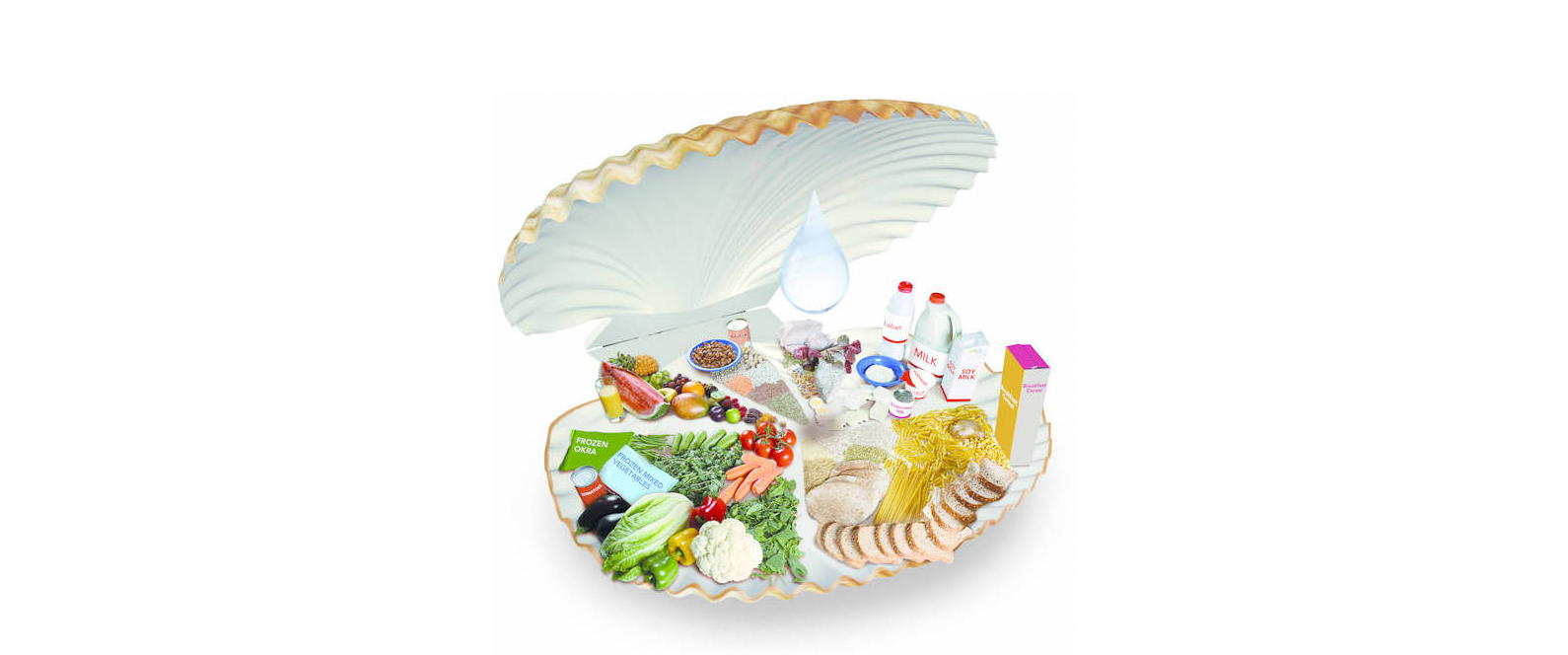Healthy Eating
 Include a variety of foods in your diet
Include a variety of foods in your diet
Eating a healthy well-balanced diet is important to attain and maintain good nutritional status. It also supports our immune system to prevent, fight and recover from infections as well as from other health problems. There is no one single food or nutrient to prevent or treat any infection, including COVID-19. A healthy diet that is consistent with healthy eating guidelines best supports our immune system by providing all the required nutrients in balanced amounts. Poor nutritional status, whether undernutrition or overnutrition, not only weakens our immune system but can also lead to other health problems including obesity, heart disease, diabetes, and some forms of cancers.
Healthy eating consists of including a variety of foods in your diet and focusing on the overall eating pattern rather than on one meal. On a regular basis, one should eat at least 5 portions of fruits and vegetables, a variety of whole grains (like wheat, maize, brown rice and oats), legumes (like lentils), and beans. One should also limit the intake of animal meat, dairy products, sugar, and salt. Fruits and vegetables are not only rich in vitamins and minerals but also contain antioxidants, which help to fight infections and are also good sources of fiber. Fiber is important for regular bowel function, keeps you feeling full and helps lower cholesterol levels. Staying well hydrated by drinking 1.5-2L of fluids a day is also crucial for optimal health.
Tips for healthy eating
- Choose fruits, raw vegetables and nuts as snacks
- Include beans or chickpeas in your salad for extra fiber
- Avoid overcooking vegetables; instead, steam cook them to retain the nutrients
- Add diced vegetables to omelets and stews for a boost of colours and nutrients
- Try to swap half of all grains to whole grains (brown rice, whole wheat flour, whole wheat pasta)

Healthy fats
Foods like avocado, nuts, seeds, olive oil and oily fish like salmon are good sources of healthy fats, which are important for the normal functioning of our brain and heart.
- Include oily fish like salmon or tuna twice a week
- Choose lean meat like poultry and fish over red meat and trim visible fat off the meat
- Replace butter, ghee and lard with healthier fats like olive, soy and, sunflower oil for cooking
- Avoid frying foods; instead, choose healthier cooking methods like grilling, steaming or boiling
- Avoid processed, fried and baked foods (cakes, cookies, chocolate) as they tend to be high in trans-fats
Salt intake
High amounts of salt in the diet increases blood pressure and raises the risk of heart diseases and stroke.
- Use salt sparingly while cooking; instead, add lemon juice or fresh herbs to add flavour
- Reduce use of salty sauces like soy sauce, stock cubes/granules
- Avoid processed and prepackaged foods such as pizza, deli or pre-packaged meat, canned soup and breaded chicken in your daily diet
Sugars
A diet with a high intake of added sugars is associated with type 2 diabetes, obesity and dental cavities in both adults and children.
- Limit intake of sweets and sugar sweetened drinks such as fizzy drinks, powder concentrates, flavoured water, ready-to-drink tea and coffee, and energy and sports drinks; water should be the preferred beverage
- Choose low-sugar dessert options and consume small portions
- Avoid giving sugary sweet treats to children. Choose alternatives like fresh fruits and dried fruits instead
- Try to avoid sweetened cereals, cereal bars and protein bars

Hydration
Staying hydrated is crucial for supporting our immune system and for overall health.
- Drink water through the day, with meals and in between meals
- Enhance the flavour of water naturally, by adding a few slices of cucumber or a few mint leaves or by squeezing some fresh lemon
Sources: Centre for Diseases Control | World Health Organization | Food and Agricultural Organization | British Medical Journal
Contributors: Ms. Anupama Jitesh, Dr. Sohaila Cheema and Dr. Sathyanarayanan Doraiswamy
Editing: Mr. John Hayward